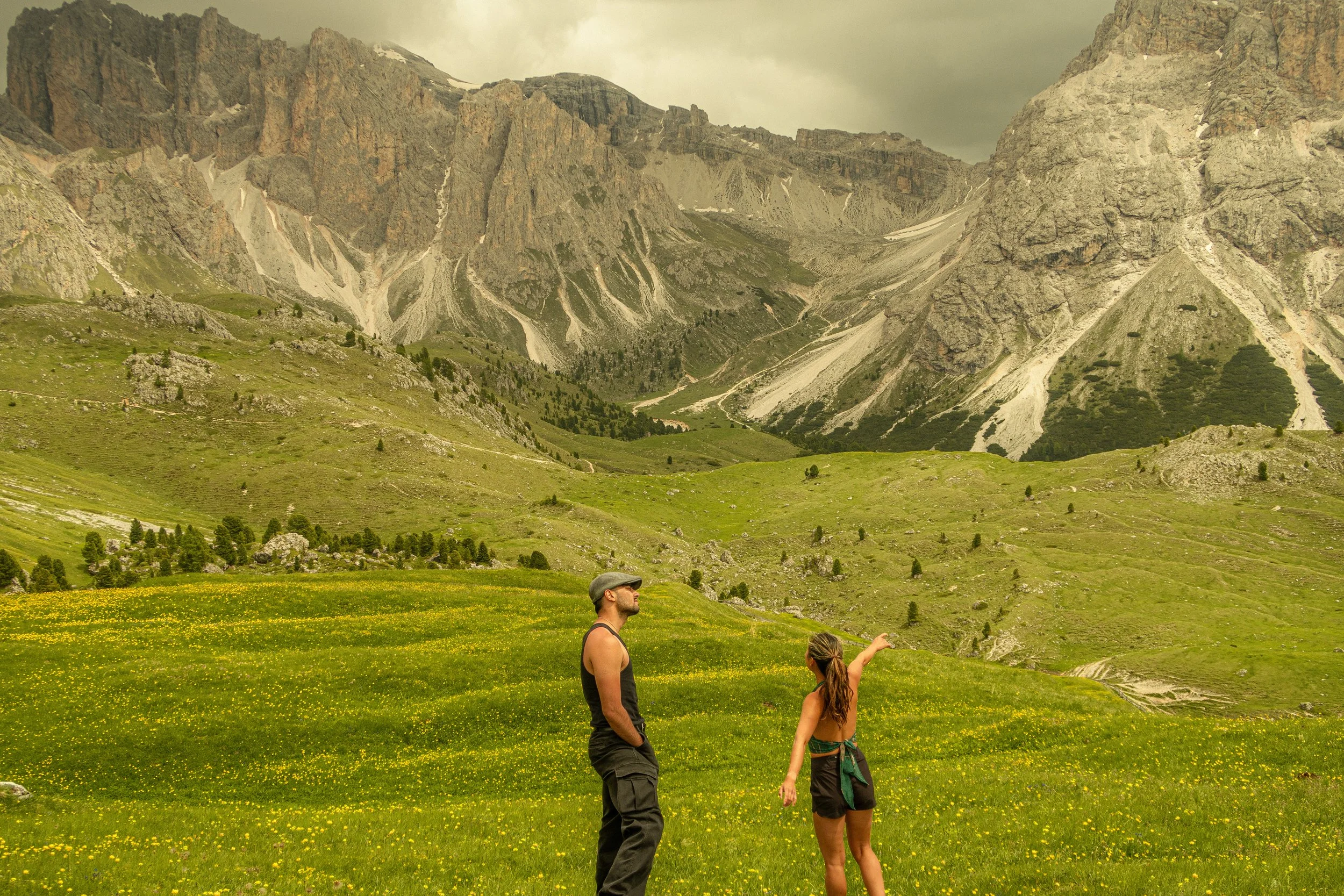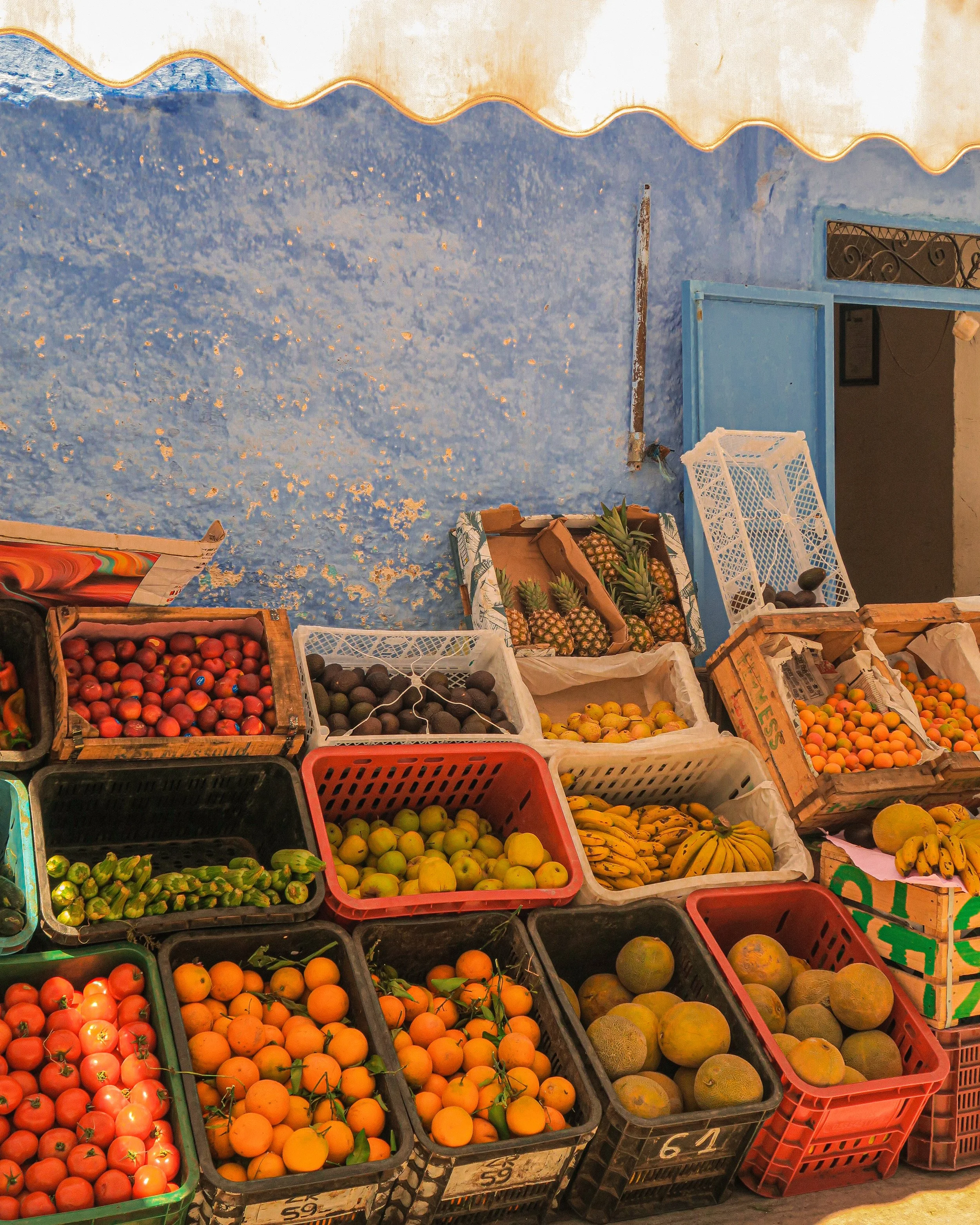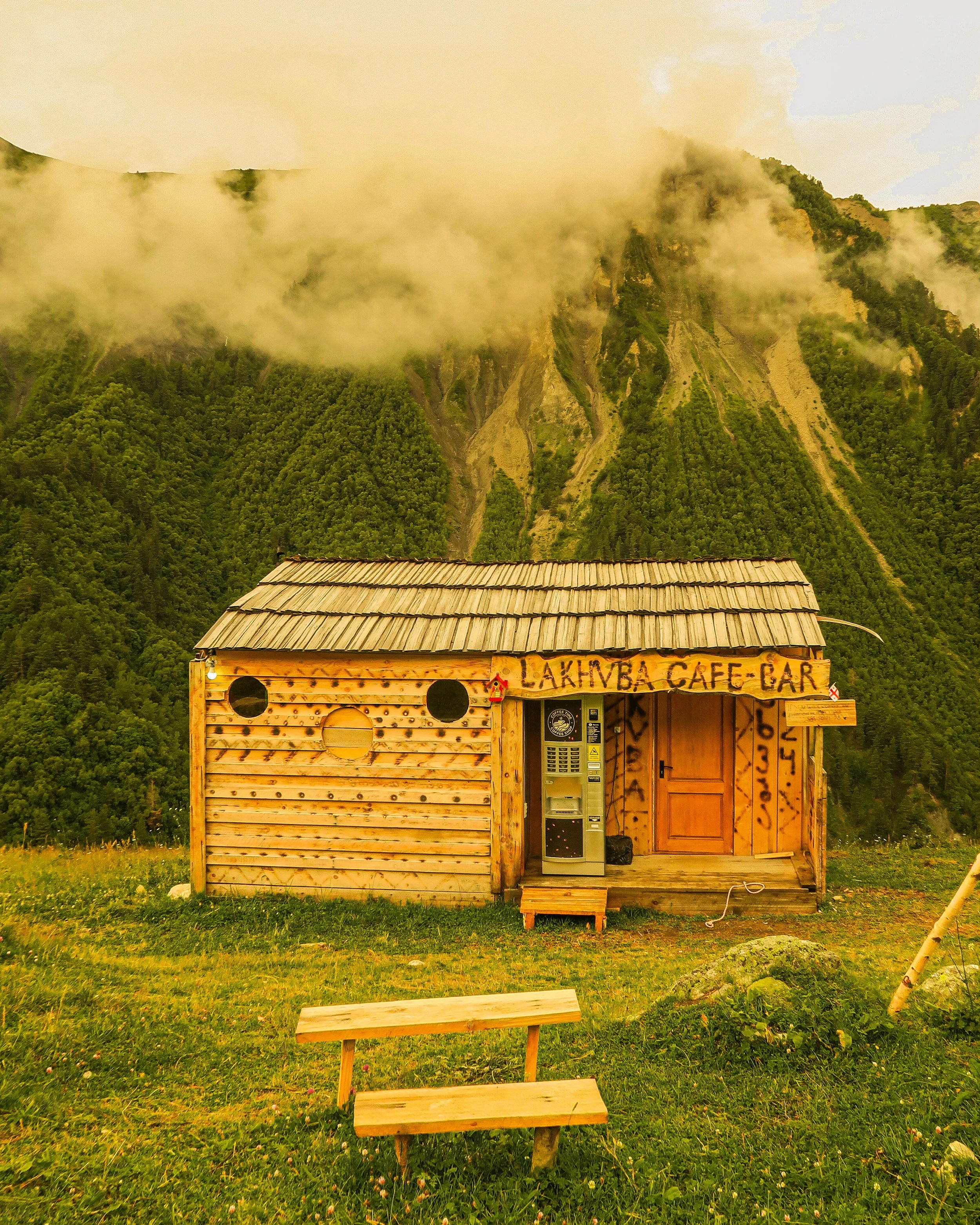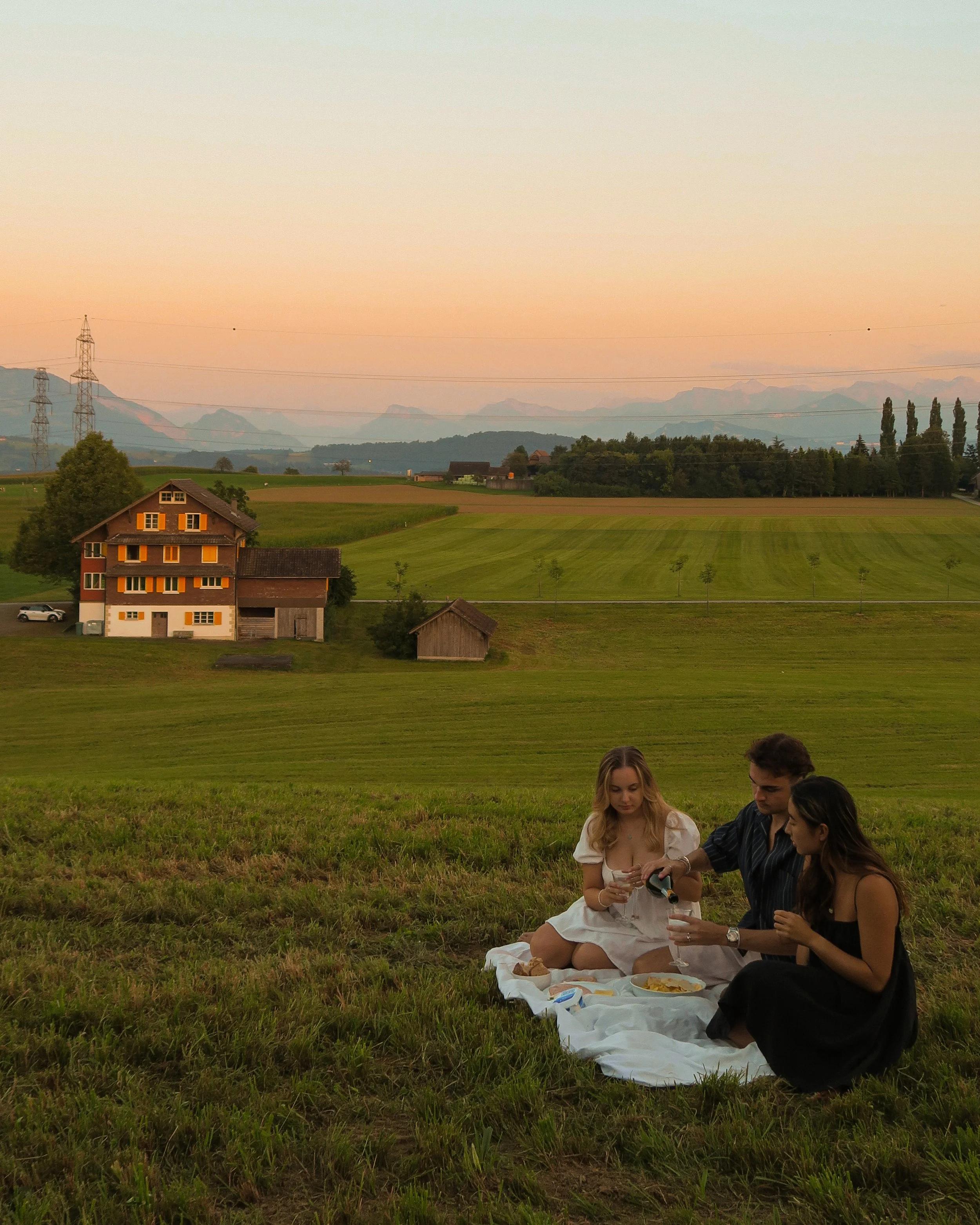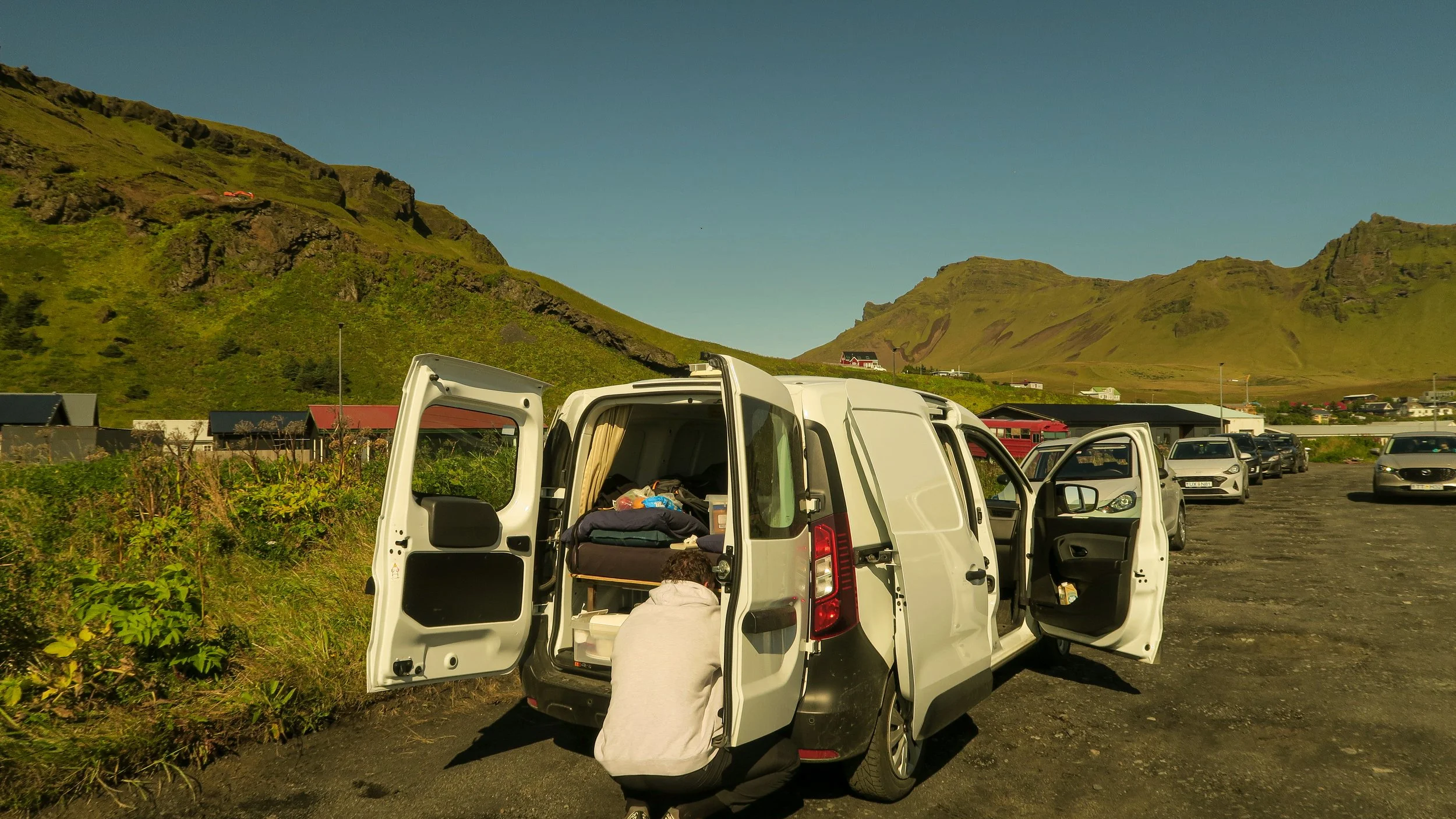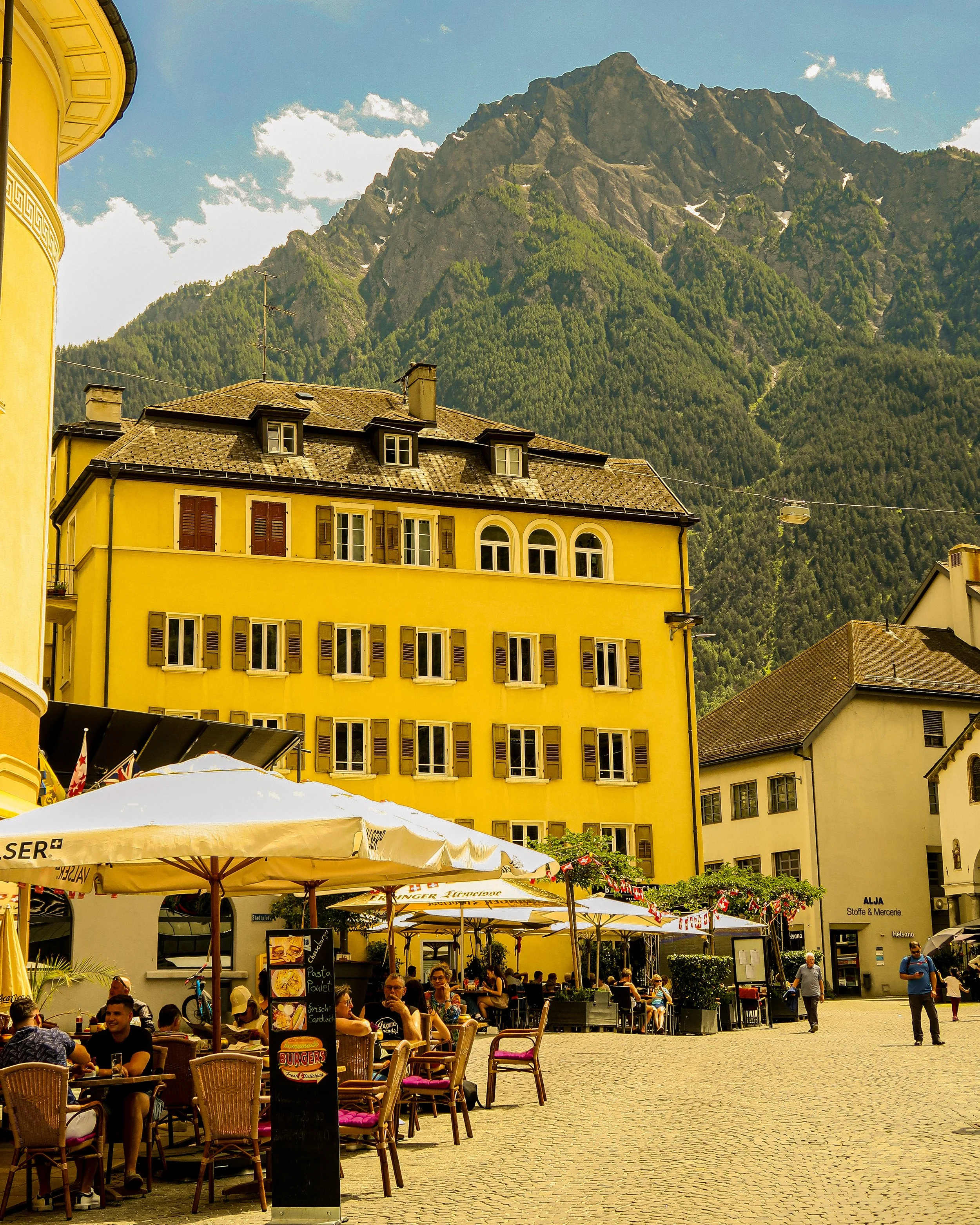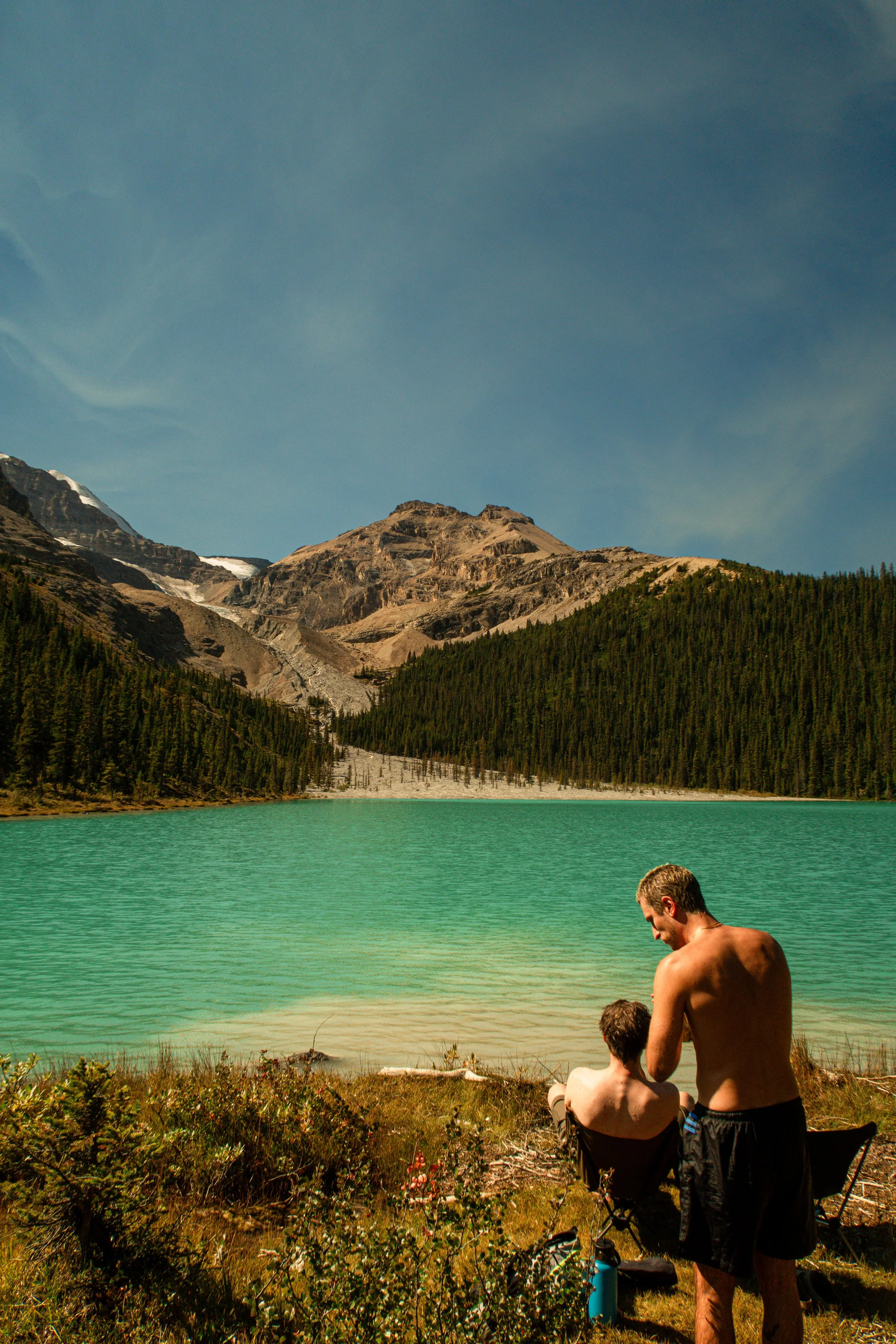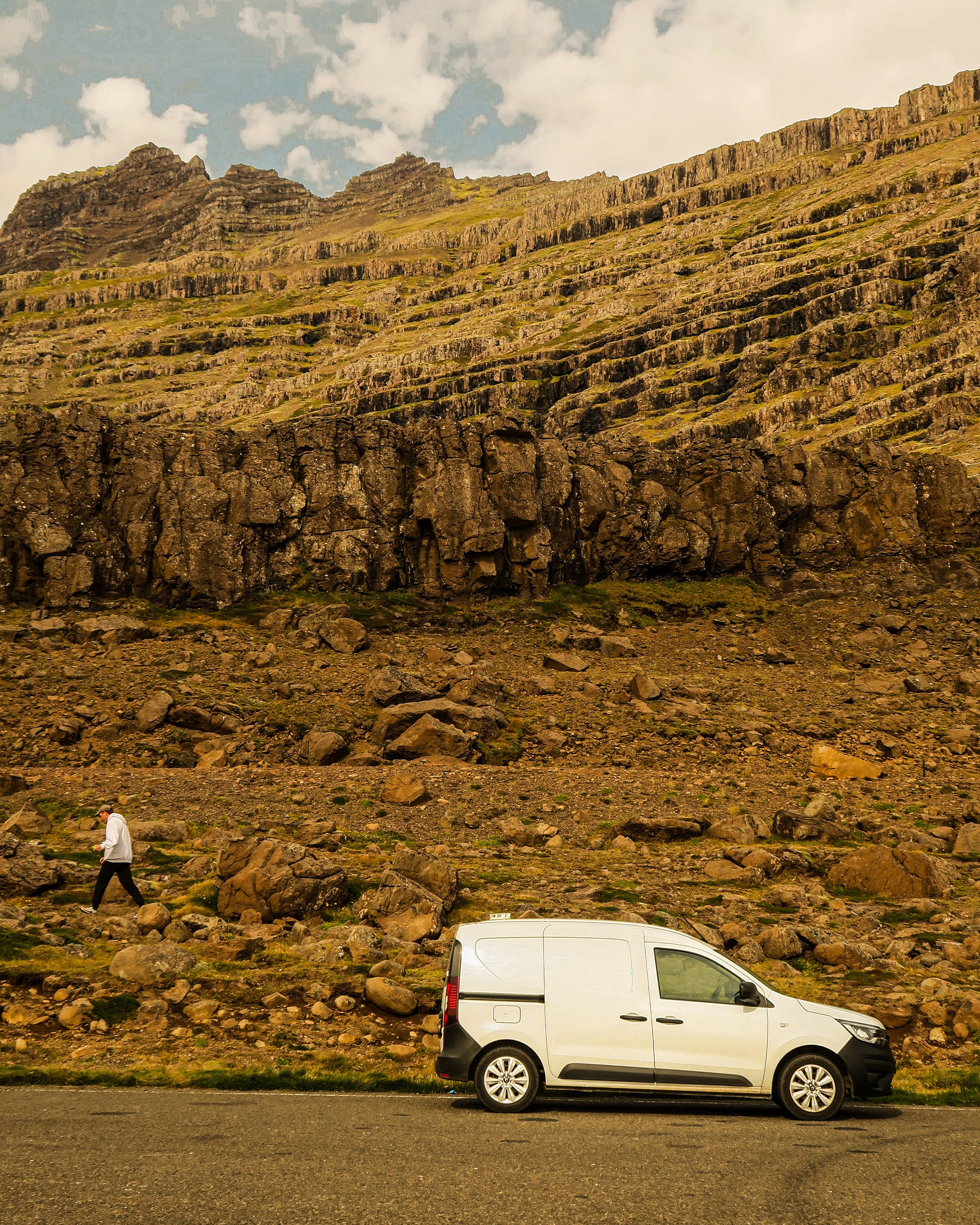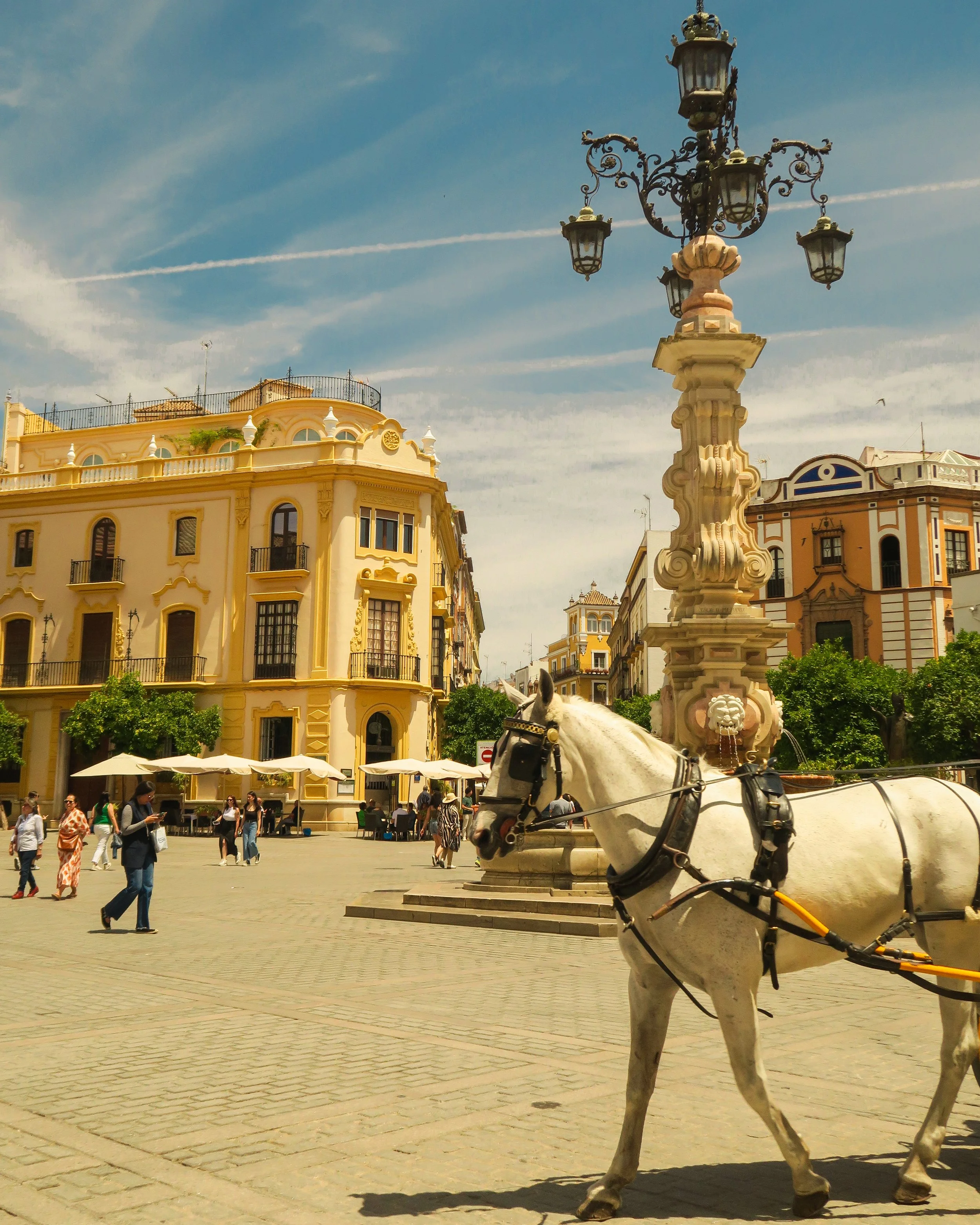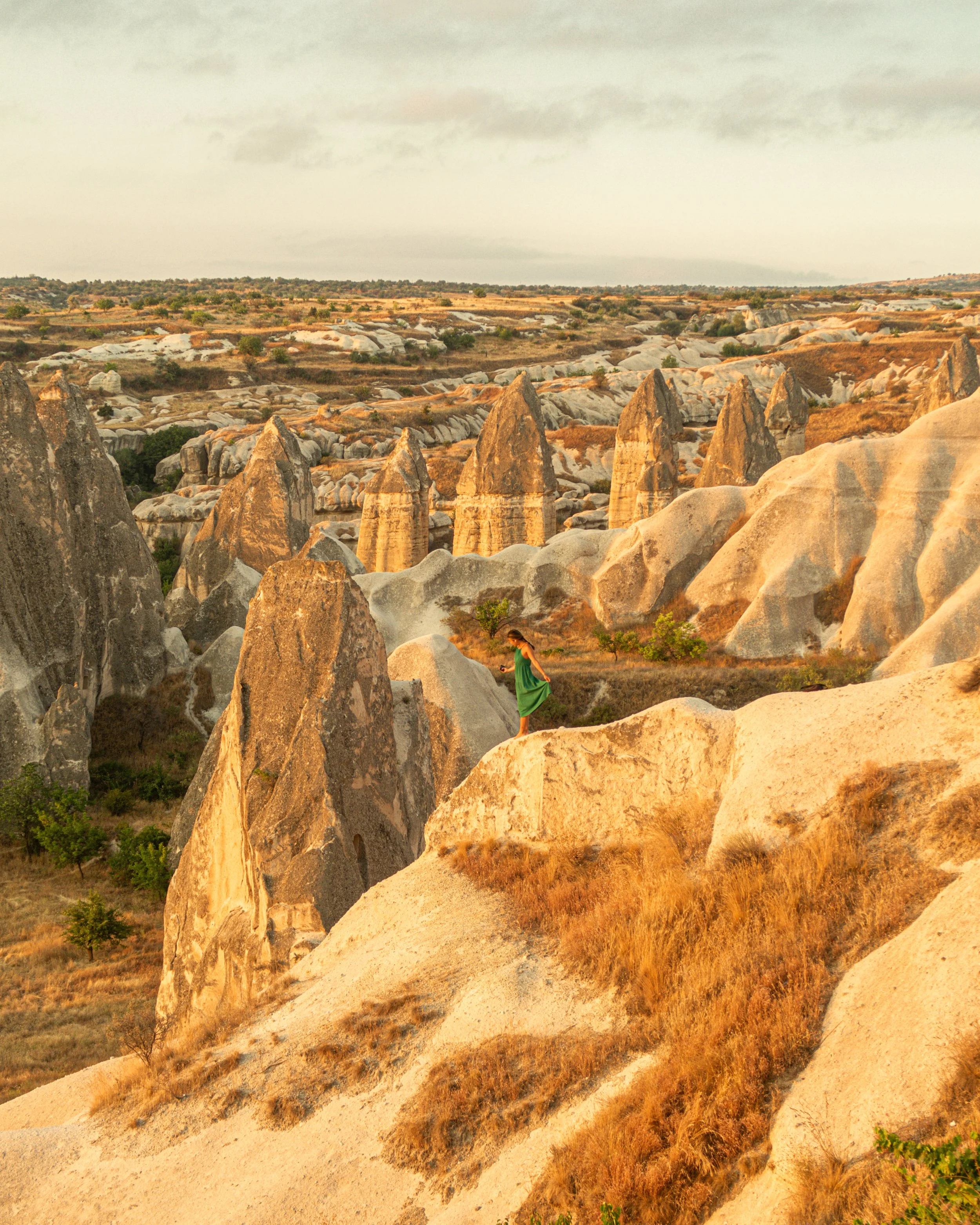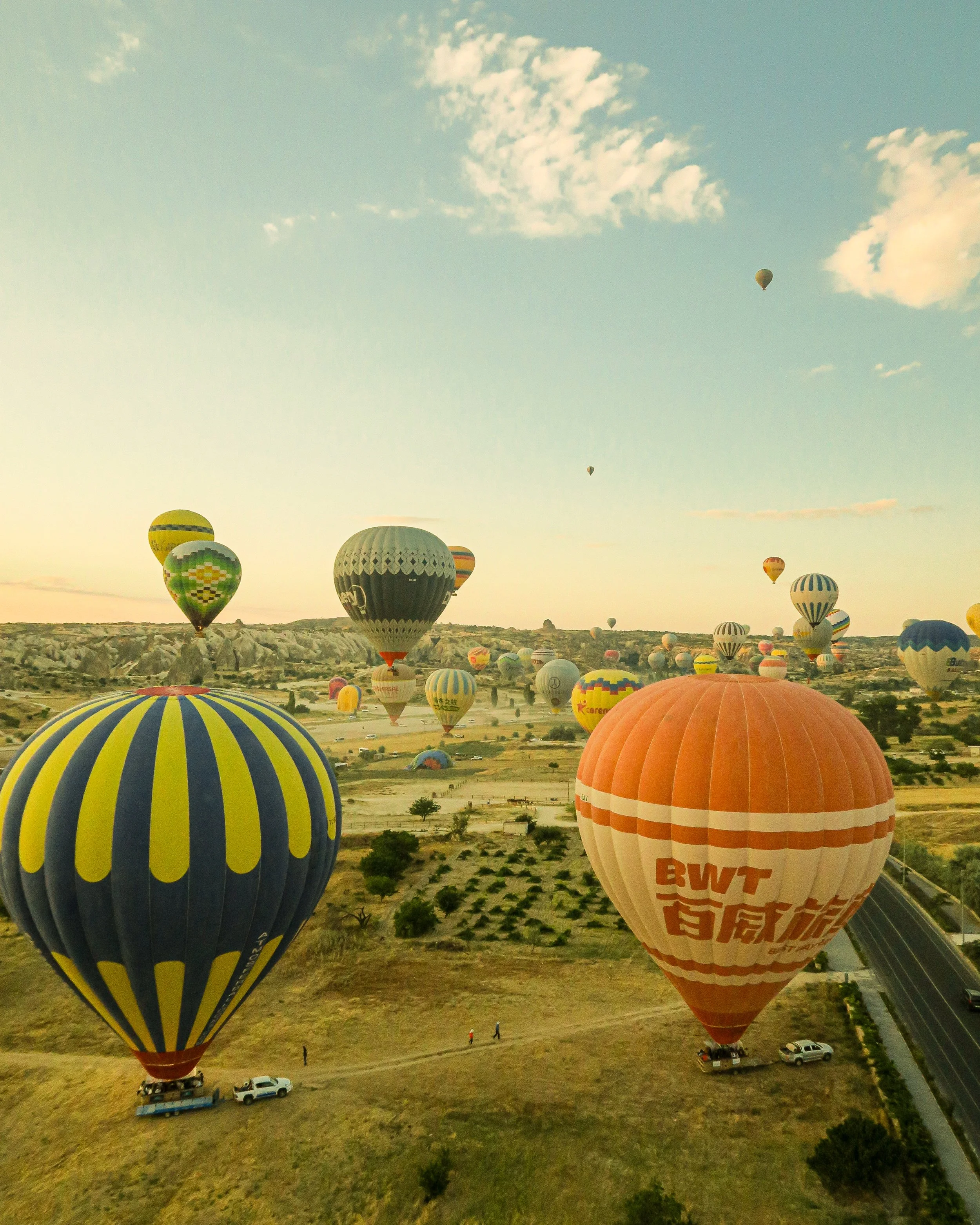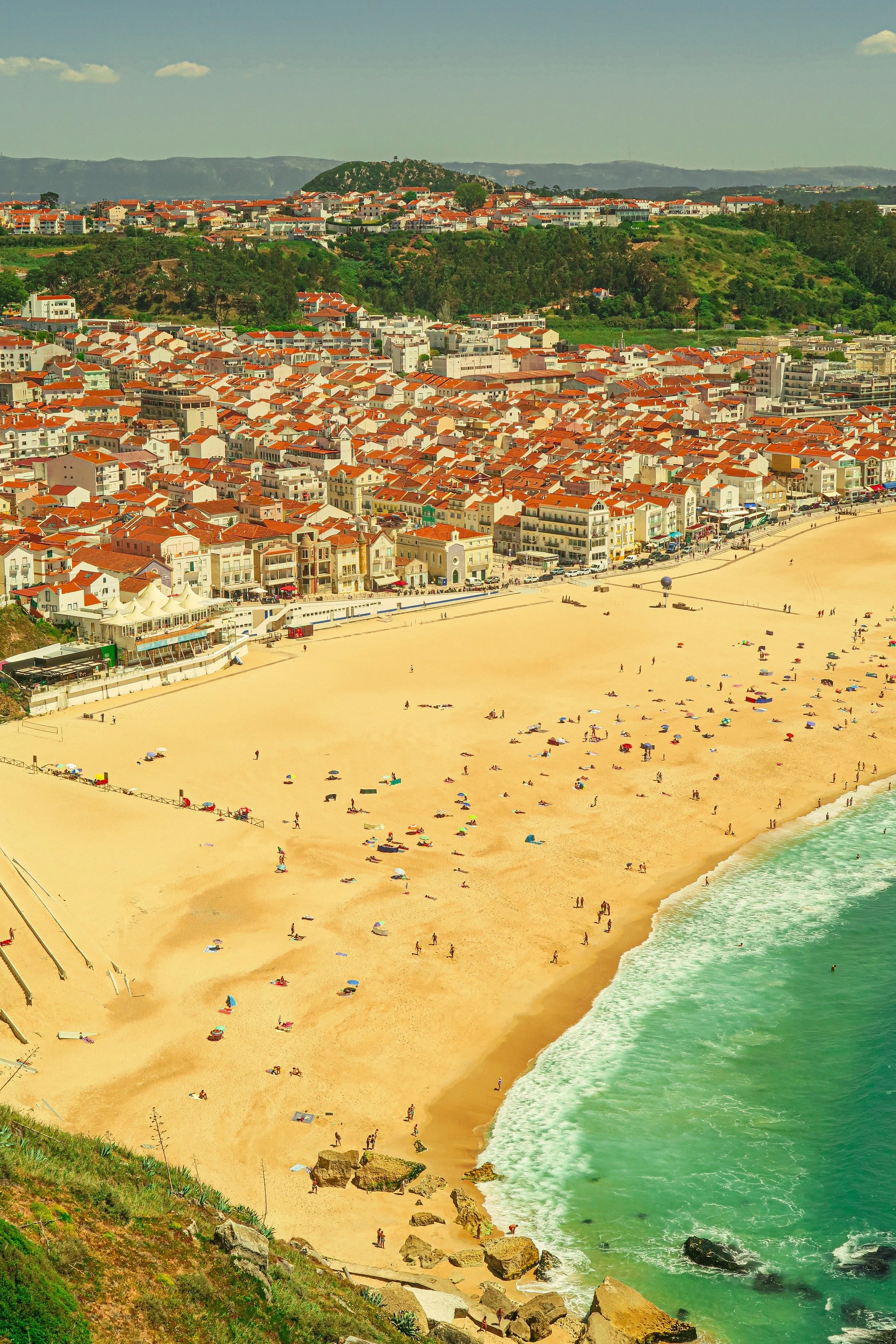One Year of (cheap) Travel
An in-depth guide on how I've backpacked on a shoestring budget: tips and secrets to affordable travel.
Dolomites, Italy.
I've been solo on the road for a while now, so am somewhat a self-qualified expert in penny saving hacks. In fact, it's embedded in my natural instinct to seek for cheaper alternatives and stretch my budget further. One might label such behaviour as notoriously frugal, however, I like to call it being "financially savvy", simply for the purpose of eventuating worthwhile goals (i.e. long-term travel).
The secret base ingredient here is delayed gratification. This behaviour, originated from psychologist Walter Mischel's experiment in 1970, refers to resisting the impulse or temptation of taking immediate reward now, in hopes of obtaining a better reward in the future. This transitions quite snugly into travel, and will be explained further along the read.
Now, I am aware that both comfort and affordability is subjective - as everyone has a different budget and travel style. However, this article is based on my travel preferences and learned experiences on how little can turn into a lot.
Here are my ultimate budget travel tips broken into the following five categories.
1. FOOD
Surprisingly, this is the silent money burner in any situation - travel or ordinary life. While it doesn't seem like it would dent the budget too much, the little buys add up shockingly quick without realisation. On the bright side, however, it is also the most easy factor to control when tracking well.
Food prices vary from differing countries. To give you an idea, the average dine-out meal on the cheaper end of South-East Asia, such as Vietnam or Laos, is usually $1-2 USD. This can soar to $5 in Japan and Morocco, $10 in Portugal and a whopping $30 in Switzerland. Of course, smaller and remote towns are incomparably cheaper to busier, metropolitan cities in most countries.
Similar to home life, purchasing local groceries and cooking will significantly help lower your expenses. While this might sound effortful, I have acquired a love for exploring new supermarkets (yes, these most definitely qualify as cultural heritage sites), discovering local produce, and taking enjoyment out of cooking.
In fact, since I've been on no rigid work schedule, I could make the time to cook. And most hostels have a fantastic kitchen for this!
Occasionally I miss eating my personal comfort food. Repetitively eating out can become tiresome. Healthier home-cooked foods can also allow you to top up your macros, protein and nutrients (which is very important to take care of when long-term travelling). Of course, certain countries are easier and cheaper to dine-out (i.e. South-East Asia). But in most Westernised countries, you'd be saving hundreds of dollars a week by eating from the fridge. How else do you think I survived two weeks in the Swiss Alps?
Chefchaouen, Morocco.
I usually stick to a $20 (USD) per day food budget on average. This will vary depending if I am in a cheaper or pricier country. However, it's okay to not always meet this everyday. Some days, I'll be cooking up a storm with my discounted groceries. Other days, I've already sat in three different restaurants before 1pm. When this happens, I usually budget for much less the following day, so it all balances out by the end of the week. Yes, this means inconsistent meals for some days - however with practice, I still try to consciously eat healthy for the most part and never starve myself. Overtime, my body has adapted to an inconsistent routine of eating.
My advice: Simple math. Try to make produce usage (by estimation) last over the number of days staying in one location. For example, if I have three days in a city, I'll cook up my base food on day one, and either meal prep or save the remainder ingredients for the following days. I usually only eat two meals a day - lunch and dinner. But some on-the-go days, I'll have a few snacks and only one meal. I also tend to research for the cheapest stores around - which are different in each country. Examples include Lidl (universal around Europe), or the 7Eleven minimart in Japan.
Examples of common, cheap eat-out meals:
Gyros in Greece ($3)
Doner kebab in Turkey ($2)
Tagine in Morocco ($5)
Panini in Italy ($5)
Dal Bhat in Nepal ($2)
Pho in Vietnam ($1)
Examples of my go-to cheap meals to cook up:
Eggplant, red peppers, leafy greens with hummus & rice-crackers.
Rice, tuna or sunny-side eggs, mixed salad & tzatziki or greek yoghurt.
Greek yoghurt, granola & berries or banana.
Snacks: dark chocolate, protein shakes, fruit and nuts.
Alcohol
Similar to coffee, alcoholic drinks can rob your wallet blind. I tend to avoid buying drinks from bars, particularly in countries that have a high tax or cultures that discourage alcohol usage. Instead, I'll purchase a $2 bottle of vino from the local supermarket - which in most European countries (especially Italy) is of exceptional quality. And probably split it with a friend too.
Both eating out and cooking local produce are ways of experiencing the authenticity of a culture. It may also be beneficial to take up a cooking class or talking to local friends to learn more about the food culture or what's in season. Whether you are a foodie or just need the fuel to get by, following these simple food practices can keep your budget low.
2. ACCOMODATION
Hostels
Mestia, Georgia.
I cannot stress enough (on my very biased opinion) that hostel stays are an elite choice for travellers. Hostels are especially well suited for those who are solo, open-minded and seeking to learn more from others. My experiences have been a mix of creating life-long friends, deeply rolling through in-depth conversations, sleeping like a log, chilling out in comfort and partying up all night. And usually the greatest benefit of hostels - is the price!
Everyone knows that, aside from airfares, accomodation prices take up the largest chunk of travel costs. This is especially true when staying in hotels, resorts or even Airbnbs.
In fact, during peak times in Europe, even hostels can become absurdly expensive. While a "temporary home" is important, at the end of the day it's really just a mattress and spot to dump your bags. I mean, you aren't going to see much of the country by exploring this room.
Luzern, Switzerland.
This brings me back to my case on why hostels should be the way to go. They may sometimes sound daunting at first, however from most of my experiences are usually very safe, clean and comfortable. Some are more sociable than others, however I've never felt pressured to socialise, and have found it easy to meet others when wanting to. Some hostels even give out freebie perks, such as "family dinners" or "free sangria night".
Using platforms such as Hostelworld or Booking.com can be helpful to keep track of hostel prices and availability, also allowing you to compare from place to place. I usually only pick hostels that are at least 8.5/10 stars, with not a single review mentioning bed bugs. I also check the location of the hostel (how central it is or distance from the train station), and whether they have a kitchen or air-conditioning. Many times, I would often check the hostel's personal website, contact them directly on Whatsapp or arrive in person at the reception to book. This is usually because the price tends to be cheaper directly through the hostel, rather than a commission based third-party platform.
I usually keep my budget to $35 USD or under, of course depending on the city and season (busy/quiet). Dorms will range in price, for example a 12-person dorm may be $20 cheaper than a 4-person dorm. Watch these prices days in advance, as the cheaper rooms sell out first.
Other options
If travelling in a pair or group, Airbnbs or hostel private rooms are usually the cheapest go. This is because you can split the costs. However, cheaper options get booked out fast, so be on the lookout early!
Free stays are a lucky option. I've been very privileged to have made lovely friends (met through my travels) from all around the globe - many whom which I've re-met with since, or are yet to reunite with. Not only have they kindly invited me to crash on their couch, but I also receive a personal exchange into their home life - meeting their friends and family, eating at local gems, learning about their nostalgia and having the best local (free) tour guide anyone could ask for. Keep your global connections close!
Selfoss, Iceland.
Spiez, Switzerland.
Other free stay options can include Couch Surfing (using the app/website and building a profile), Facebook groups such as "Host a Sister", and volunteering work with provided accomodation (i.e. from Workaway or Worldpackers).
Volunteering in hostels are a great way to balance making friends and lifestyle activities during off-work hours, while also scoring a free bed in a cool location (I'd recommend looking into the pricier regions to get more bang for your buck, such as the Nordic countries). I had a great experience volunteering in Sicily and working as an Au Pair in Lake Como.
Within the past month, I have inexpensively road tripped with friends across countries such as Iceland and Canada. While these locations are notorious for expensive accomodation, I have chosen to rough it out - sleeping in the back of the car or on the freezing ground in mattress-less tents. And though camping comes with less comfort, I can confirm that it has been undoubtedly more fun and adventurous. Hence, worth it.
3. TRANSPORTATION
Airfares and flights
This is the largest money bomb to drop at any point - whether it's prior to starting, during the travels, or heading home. Nothing quite justifies the cost of sitting in a claustrophobic flying box to just rise up and down whenever it wants. It truly is a gamble, with if and when you have scored the best price for a flight. However, there are ways around keeping it on the cheaper side.
I frequently use platforms such as Skyscanner or Google Flights to check and book through - and yes, some days I am obsessively checking and manifesting for better deals. And sometimes, they do! These platforms are also very handy for comparing which cities are cheaper to fly in/out of, and showing you a nice layout of price differences on each day of the calendar.
Alberta, Canada
80% of the time, booking earlier is usually better - particularly for long flights from differing continents. However, smaller flights and cheaper airlines, i.e. Ryanair or Easyjet within European based countries, can be purchased fairly cheap just a day or two before. These flights are especially affordable if not adding check-in luggage - which I never have to do with my handy little cabin bag (discussed further below). Commonly, I'll search for my destination to "everywhere", and see what cheap options it throws me.
Also, remember to always check-in before the 3 hour cut-off time. Learn from my mistakes - you want to avoid that €55 late check-in fine!
I do recommend to always try and book directly through the airline's website, particularly if you need to flexibility to change flight dates. However, a handful of times I have booked through third-party websites such as Gotogate or Booking.com due to being significantly cheaper, and have had no issues. Make sure to research and read the reviews of these third-party websites first.
Trains, ferries and local buses
In most developed countries or within interconnected metropolitan cities, a workable train system usually exists. Whether it's an underground subway or high-speed rail, you can save not only dollars, but plenty of time on these speedy vehicles as opposed to taking a taxi. The same goes with buses and shuttles - there should always be an option to take one to/from the airport provided before midnight.
Ring Road, Iceland.
In less developed countries in areas such as Africa, Central & South-East Asia, Central America and in the Balkans, buses are more frequently used. Bus information tend to be difficult to find in these places, so I would advise speaking to hostel workers, other travellers and locals. Bus tickets are generally always affordable.
Ferries can also be a great alternative travel option, though not commonly available everywhere. For example, my ferry from Morocco into Spain cost me $40 and took only 1 hour. And I'm not lying when I say it was a pretty damn cool experience continent crossing over the water.
While a flight is usually advantageous for time, trains and buses are arguably more environmentally friendly, less stressful and usually much cheaper. Personally, I find riding vehicles with wheels much more comfortable than planes, and can sit in peace knowing I didn't have to just throw out all my waters, foods and liquids prior to boarding. In fact, just skipping the whole security chaos is alleviating.
Trains often come with tables too, which can be perfect for any laptop work or usage. Not to mention, the scenery is also part of it. I once spent 12 hours commuting on trains in Switzerland - and while that hurt my bank account a little, it was the most magical ride of my life.
While travelling on a bus through Northern Morocco's countryside, a friend of mine said; "sometimes I feel as though I've paid for a scenic tour ride instead of just a bus." I think that's a beautiful way of taking the journey in, especially if you despise long travel days.
Alternatives to taxis
Find out what the cheapest form of Uber is in your country, for example Bolt is commonly used in Portugal, or Grab in Vietnam. If you have others to split the cost with, or prefer a car to the local bus - this is your best bet. It can also be a safer option to use an Uber when travelling at night. In most countries, you should avoid taxis (particularly to/from the airport) unless it's a last resort.
Hiring a car/van is another great alternative. This was especially handy in places that lacked other transportation options (i.e. Madeira Island, Albania or the Sahara Desert), and countries that were more efficient to road trip in (i.e. Iceland). Rentals aren't always the cheapest option, however choosing a manual vehicle, booking in advance and even sleeping in it can help. And always purchase the full insurance (don't be scammed)!
Seville, Spain.
During my time in Georgia, I hitchhiked my way from North to South of the country. This was a wicked way to meet locals and other travellers, consume more stories for the plot and save my dollars.
Of course, this activity holds a stigma and history of scary tales. As the saying goes, "don't trust strangers" - however, experience has told me otherwise. I usually follow my intuition (that I believe to have built up quite strong), and am observant of the stranger/s I'm about to jump into a car with, i.e. reading their aura.
While risks always exist, I believe that certain countries pose less of a threat for this common activity than others.
For example, hitchhiking is still very popular throughout Europe, and locals are usually happy to help a broke traveller find their way.
In fact, I have recently met many travellers impressively hitchhiking their way from Europe down to South-East Asia. However, it is less endorsed in other countries such as the Americas.
If you're in for the adventure - you'll likely gather some fantastic stories along your journey by choosing to hitchhike!
Getting those steps in
Anyone who knows me is well familiarised with my deeply stubborn nature, particularly when it comes to not paying for transport if I can help it. Now, if you are old and frail, physically disadvantaged, completely exhausted or (on the maybe rare occasion) absurdly hungover, I completely agree that grabbing a taxi is the go. However, for myself, I often refuse to give in to this option unless my life depended on it (or if my safety was at stake, i.e. after sundown or in sketchy areas).
Instead, I always choose to walk.
Hear me out; I've arrived in a new town and need to get to my hostel - provided the distance takes less than 2 hours, the heat is not aggressive and I have both the time and energy, I'll leg it. Being fairly young, fit and broke - these are all ingredients to make the most sense. And while the journey can sometimes be unpleasantly tough, particularly on those hilly Portuguese streets or busy Nepalese roads, the reward always hits nicely when I arrive at my destination in the end (because, delayed gratification).
Cappadocia, Turkey.
Additionally, the journey is always enjoyable - because everything around me is usually new. Walking is the best way to fully observe your 360 degree surroundings, to tune into all five senses - familiarising yourself with the area, to grow your natural GPS abilities and to do some exercise! Naturally, the endorphins you receive from walking will also lighten up your mood throughout the day. And if that isn't enough convincing, let me assure you that this is the most universally free form of transport to exist.
Now, the efficiency of this depends on your mindset as a person. If you wire your beliefs about walking being neither boring or a chore, and rather focus on it's benefits (in-depth exploration and frugality), you'll become more inclined to opt on such form of commute.
A favourite practice of mine when wandering an old town centre - turning off my Google Maps and walking down every random, interesting street. Until I am lost and miles away from home. I also love to pinpoint different spots that I want to re-visit, such as a cafe or cute bookshop. It would be hard to find these kind of gems if commuting via moving vehicle.
If you have working legs, decent vision and want to burn some calories, walking will become your budget's best friend. Headphones in, strut on! The city is yours. Be that main character from that movie scene.
4. BAGGAGE AND MINIMALISM
For a year now, I have been living in my fantastic little 40L Osprey Fairview backpack.
This bag has been through a whole damn lot, and hasn't yet (touch wood) endured a single rip or tear. And let me tell you, when I say I fit my whole life in this guy, I am not kidding.
Things that I have been lugging around: travel-sized exercise mat, two tripods, three cameras, a laptop, winter and summer clothes and toiletries.
Even with these minimal items, I've realised that I could still live without half of them. Meaning, I don't really need a lot to get by. And everything that I have left at home (more clothes and materials), to be honest, I've forgotten all about. And trust me, I used to be a massive over-packer!
Once complying with this concept, I have consciously budgeted to meet the requirements of minimalism. I have no urge or desire to buy new clothing, unless my old garments become worn out and desperately requires replacing. I also have no extra merchandise space in my bag, so this helps discourage additional spending on unnecessary souvenirs.
The exact dimensions of the Osprey backpack is 22H X 14W X 9D, which allows me to always opt for cabin bag only on flights. It's also easy to carry around (provided I keep the weight fairly tolerable) - especially on flights of stairs and cobblestone streets. Also helpful for speedy packing during stressful hostel check-out mornings.
I highly recommend to use a backpack similar to this size if planning to long-term travel. The resisted urge to shop and spend becomes tamed overtime if trained to, making your life overall much easier. As human beings, we always tend to overpack, or think we need more than we actually do. This habit encourages us to push on our travel budget unnecessarily.
5. ACTIVITIES THAT COST NOTHING
Avoid visiting places for the purpose of paying touristic attractions.
The more I travel, the more I learn about what kind of travel style fits me. I try to explore new cultures and places as authentic as possible, rather than to just "tick the box". These days, tourist traps are common, and entering into iconic landmarks or even certain churches or mosques come at a ridiculously high fee.
Some landmarks are very much worth paying the price, particularly if your interests are strong in these areas. However, exterior designs commonly tend to be more breathtaking than whats within, so I usually enjoy observing (for free) from the outside, while reading online or talking with others/locals about the relevant history.
Cappadocia, Turkey.
Similarly, paying an entrance fee to climb a tower for a sunset view-spot is a bizarre concept to me. I always manage to find an alternative hill to hike up and sit on instead, watching the same sun fall behind the town. Admiring this gift from Mother Nature has a much more raw feeling to it when found in a quieter, less touristic area too. And not to mention the beauty of peace, once displacing yourself from overwhelming crowds.
While it might not be for everyone, one of my all-time favourite activities to do is to hike. Every trail is unique, and will bring you different sceneries. The rewarding feeling of reaching a summit is like no other, and most trails cost little to nothing. This activity, along with running, is often a trip highlight regardless of where I am
Almost every town or city has a location to picnic, sit and read, play with a frisbee, sip on an aperol spritz, lie under the smiling sun, or to simply practice "la dolce vita" (one of my favourite Italian quotes, meaning; to take the time to pause and appreciate the sweet life). Whether by a grassy park, lake-side stream, bridge over a canal, edge of a mountain or bank of the seaside, there will always be space for you to spread your legs out and take the atmosphere in. Just be present, people watch or let your thoughts go wild. These are all underrated activities that cost nothing but a smile, and are enjoyable both in solitude or with friends.
Other additionally free activities to do include certain museums and art galleries (many of which are free in the UK), or walking tours (I'd recommend using the GuruWalk app). Talk to friends and workers in the hostel for other creative ideas, there's always something to do!
OTHER GENERAL TOP TIPS
Buy travel insurance. Be sure to purchase and invest generously in a good one. While travel insurances tend to seem like a rip off initially, they come in clutch for long term travel. Things do go wrong. Trust me, I've had to make an embarrassingly large number of claims over this past year of travel, however thanks to insurance, I have not lost a cent. Always opt for $0 excess too. I use SCTI (Southern Cross Travel Insurance). This company has an excellent comprehensive policy and have been fantastic to contact and communicate with.
Get an E-sim. The ease of multi-country group coverage, and not having to manually pop in a physical sim. I use an app called MobiMatter, which have cheaper coverage price alternatives for most countries and for different period options (i.e. 5GB for 2 weeks, 10GB for 1 month, etc). However, in less-developed places, such as Nepal, purchasing a physical E-sim was much cheaper.
Reduce the amount of country hopping in a small time span. If you have the time to travel for longer, I highly advise slow travelling and spreading it out. Instead, explore country by country, reducing the need to purchase expensive flights and pricey trains. The world is big, and you need to give it time. I say pick a place simply because it's affordable to get there!
Seek for local areas to dine in. This gives you a more authentic experience. Avoid menus written in english, or pushy staff persisting you to enter their restaurant. Use the Google Translate app to take photos of menus that you can't read.
Find one traditional meal (i.e. greek salad or nasi goreng), and use this as a comparable price check or each restaurant's menu that you walk past. This will allow you to get a sense of price in that particular area (and help you make a wiser choice for dinner).
I usually enter into google "cheap top rated food near me" and check menus online prior to eating out. Be sure the place has over 4/5 stars, and that menus have been uploaded within the last 6 months (as inflation these days is quick). If using a VPN, you may be able to download local food apps (such as Too Good To Go in Europe), which discount foods about to got to waste at the end of the day.
Hostel kitchens. Take advantage of the "free shelf". It can be a real hit or miss, but often you might find a packet of pasta and half a jar of pesto. That's basic math for a quick meal. Numerous times I've even made up a full blown meal, not to mention an additional unopened chocolate bar with a tape over it saying "free, eat me". Felt just like Christmas.
Protein shakes and snacks. These are huge in Europe with the recent trend on fitness. Not only are they affordable and filling, but also packed with protein (which can be hard to source a lot of when on a budget). Protein is exceptionally important to keep up when burning all those calories travelling around. And if you have an alternative diet, most of these shakes are vegan and low-no added sugar.
Make friends and connections from all around the world, and keep in touch! You never know when you might have a free place to crash, and reunions are a beautiful thing. Local friends are also great to show you all the secret ins of a town or city, usually complimenting budget-friendly prices. Splitting prices with other travel buddies (i.e. meals, car rentals, private rooms) can also come in clutch.
Fill up your water bottle in outdoor fountains or airport taps before boarding the flight (in countries with clean drinking water). If I don't have a reusable bottle on hand, I will purchase a large/easily portable water bottle from a grocery store and re-use it to the point where I feel it's just too gross. This helps to look after our environment too.
If in your 20's or are a student, always ask for discounted prices - whether this is for a bus or train ticket, or museum entrance. I've saved hundreds of dollars added up, doing this. Many cities do account for such discount, however they won't always give it to you unless you ask. And ID is not always requested. You have nothing to lose (even if you sneakily near or over your 30's), plus if you dress like a grubby ol' young backpacker, they probably will believe you.
Purchase less than 100ml bottles for soaps, shampoos and other essentials, and top them up whenever you can. This way, you can take it all on the plane in your carry-on bag. I usually never re-purchase essentials until I have to! Storage is limited when backpacking, but this also restricts your spending habits.
Take risks if you're feeling lucky, however, try to avoid fines at all cost. Sometimes jumping on a pricey train ride can be a gamble - if lucky, no one checks your ticket. However sometimes, you'll be paying 3x the original ticket price. Maybe tune into your recent deal with Karma before making any (fun) impulsive decisions.
My favourite sneaky tip: finding chain stores in each city that happily give out food samples (usually desserts, such as traditional chocolates, cakes, teas and hot chocolate). I spent a day trying different kinds of baklava and turkish delight in Istanbul once, to the point where I did not need lunch or dinner. This felt like a free food walking tour, and speaking with the local workers was great fun.
SUMMARY OF COSTS
Coming into the first six months of my travel, I had fairly budgeted $13,000 USD, and planned to visit 6 European countries (with Italy being the most expensive), Nepal, Thailand and Vietnam. Prior to travelling, I had researched the current prices on general daily spending to gauge an idea.
Nazaré, Portugal.
On average, in Europe, these were my spendings on most days:
Food: $22 per day
Accomodation: $36 per night
Transport: $12 (not including flights)
Attractions/Other: $5-10
And in Asia:
Food: $10 per day
Accomodation: $13 per night
Transport: $4 (not including flights)
Attractions/Other: $1-5
By the end, I had come nicely under-budget, sitting around $11,900 spent for half the year (flights included). For the following six months, I thought that I'd have to slightly expand my budget (being mostly based in European countries). However, with sticking to similar spending habits and having many kind free stays at friends' places, I sat around another $8,000.
So, the total damage for one year of travel just comes under $20,000 USD.
The most common question answered
Quite often, I get asked about how I have enough money to afford one year of travel. The truth is simple.
I always desired to travel the world from my childhood days. As a student, I took up multiple jobs simultaneously - english group tutor, support worker and weekend cafe supervisor. This meant grinding up a very full-on schedule, working and studying everyday, sacrificing sleep and weekend night outings.
The pandemic had motivated me to grow savings that I previously had (from odd jobs worked throughout high school). However, in the long run, it was all worth it. After graduating, I used my degree to take up three Physiotherapy jobs (in different areas), whereby I sometimes worked two in one day, or seven days of the week. I did this for four months, prior to commencing my travels. Therefore, I was able to comfortably budget for the trip.
Personally, I think it's fun (and a complete privilege), to travel "broke". Feeling poor, and frankly quite homeless too, can be frustrating. But adapting to this new lifestyle eases the ability to gain appreciation for all the many little occurrences of everyday life. Trust me - the small occasion of treating yourself out to a meal, or even better, sleeping on a real bed (bigger than a crappy single mattress) in a private room all to yourself - becomes a true luxury! And man, this kind of reward is just unbeatable.
Ring Road, Iceland.
The above pointers can tie in nicely with delayed gratification. Let's put it in a scenario; [option 1], you opt to abuse the "treat-yo'-self" concept and overspend your first week in Paris on luxurious hotels, gourmet restaurants and cab rides. However, your bank account holds up only a few days, maybe a week - restricting any extension of your travels.
However, [option 2], taking the less comfortable and more strenuous route of transport (i.e. trekking with your backpack under the beaming sun), staying in dirt-cheap hostel dorms and cooking up grocery-bought produce. While this travel style may not be as glamorous as option 1, the ability to extend your time exploring Paris, and perhaps even the rest of France, becomes much more viable.
The less money you spend, the more travel time you receive. The more days, the more rewards. And from my personal experiences so far, those rewards are most certainly worth it.
I would highly recommend to always budget a little more than where your estimated expenses sit. As with anything great in life, it's easy to become carried away and spend more rather than less. Longer travel time length increases the risk of unexpected events occurring (i.e. theft, hospital visits, replacing shoes, etc), which is when the rainy day dollars will come in handy (and that hefty travel insurance investment too)!
Death Valley, California.
Writing and sharing all of this has made me so happy. Hopefully this in-depth guide on affordable travel has come in handy for your future plans.
If you have any other specific questions regarding budgeting and general solo travel advice, feel free to send through an email or message.
